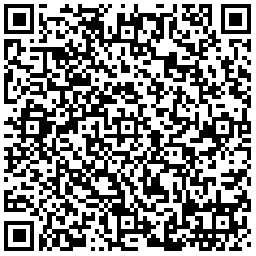2019.02.21 17:56
新东方在线中考网整理了《2019中考英语复习资料:情态动词》,供同学们参考。
情态动词:
①常见的情态动词有:can (could) ,may (might), must ,shall (should), will (would), dare (dared) , need等,另外,have to、had better也当作情态动词使用。情态动词后面必须加动词的原形。
②can表示体力、脑力方面的能力或客观的可能性。口语中, 在询问或说明一件事可不可以做时,常用“can”代替“may”。情态动词“can”的过去式是“could”,否定式是“cannot”通常缩写成“can’t”,“could”的否定式是“could not”,通常缩写成“couldn’t”。如:Can I help you?(要帮忙吗?)/ He can swim.(他会游泳)/ That can’t be Mr Li.(那不可能是李先生)
③ may表示允许、请求或可能性,用may提问时,肯定回答一般用Certainly或Yes,you may.;否定回答一般用can’t或mustn’t. 如:May I ask you a question?-Certainly.(可以问你一个问题吗?当然可以)/ You may go now.(现在你可以走了)/ It may be in your pocket.(它可能在你的衣袋里)
④ must表示“必须”、“一定”的意思。表示“必须”时否定形式是mustn’t;表示“一定”时,否定形式是“can’t” 如:We must be very careful when we cross the road.(我们过马路时一定要非常小心)/ It must be Jack.(那准是杰克)/ I haven’t seen Kate today. She can’t be here.(我今天没有看到过凯特,她不可能在这里)
[注意]用must(必须)进行提问时,肯定回答用must,否定回答用needn’t;用must(一定)进行提问时,肯定回答仍用must,但是否定回答用can’t.如:Must we clean the room before we leave? -Yes,you must.或No,you needn’t.(我们走之前必须要打扫房间吗?是的,必须打扫。/ 不,不需要。) / Must she be in the romm? -Yes,she must.或No,she can’t.(她一定在房间里吗?是的,一定。/ 不,不可能在。)⑤ “have to”表示“不得不”、“必须”。We’ll have to leave now for it is very late at night.
have to的疑问形式是:助动词+…+have to,否定形式是:助动词+not+have to或者用needn’t.如:Do you have to stay until 8 o’clock?(你得呆到8点钟吗?)/ You don’t have to do so.(=You needn’t do so.)(你不用这么做)
⑥ shall在问句中,可表示征求对方意见,与第一人称连用;在陈述句的第二、三人称的主语后或表示“命令”、“警告”、“允许”等。如:Shall we go to the zoo this weekend?(我们这个周末去动物园好吗?)/ He shall bring his own book next time.(他下次必须带自己的书来)
⑦ should可表示“劝告”、“建议”、“惊奇”等意思。We should speak to old people politely.(我们应该礼貌地对老人讲话)
⑧ will表示“意愿”、“决心”等意思,一般与第二人称连用。如:Will you please close the door for me?(请你替我把门关上好吗?)/ I will teach you a lesson.(我要教训你一顿)
⑨would表示过去的“意愿”、“决心”等。He would sit near the fire every time he returned home.(每次他回到家中总要坐在火炉边)
would也可以表示现在的情况,表达说话人向对方提出的要求,语气比“will”婉转、客气。在日常会话中,“我想要…”通常用“I would like to”或“I should(I’d) like to”来表示。如:Would you like to have a rest at the moment?(你现在想要休息一下吗?)
would还可以表示过去经常发生的事情。如:Every year parents would tell their children about the boy who would save his people.(每一年父母们总是向孩子们讲述这个将会拯救他的人民的男孩的事)
⑩ need表示“需要”,用于疑问句或否定句。“need”作实义动词时,在肯定、否定、疑问句中都可以用。如:He needn’t do it in such a hurry.(他不需要如此匆忙地做这件事)/ He needs some help.(他需要一些帮助)/ He doesn’t need to bring his football socks then.(那么他就无须带上足球袜了)
⑾ dare是“敢”的意思,用法几乎与“need”完全相同,即在疑问句和否定句中,可以作情态动词,后面用不带“to”的动词不定式。在肯定句中和实义动词一样,后面的动词不定式要带“to”。How dare you say I am a fool?(你竟敢说我是个傻瓜?)/ He didn’t dare to touch the red button.(他不敢触碰那个红色的按钮)
⑿ ‘d better (do)(“最好是”)一般也当作情态动词使用,否定式是:’d better not (do). 如:You’d better sit here and say nothing.(你最好坐在这儿不讲话)/ You’d better not speak because he is sleeping.(你最好不要讲话因为他正在睡觉)
相关链接

扫码预约一对一精华课
资深教师+1对1定制教学
